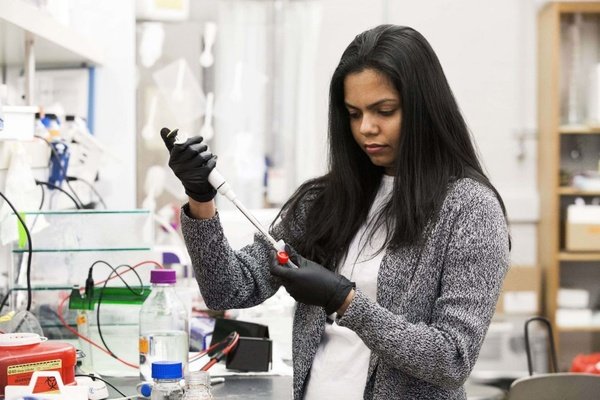One PhD Candidate’s Path to BYU
Aug. 2, 2019

PhD candidate Ashari Kannangara came to BYU from Sri Lanka to study how to make chemotherapy more effective. “I have seen a lot of people go through the pain of cancer,” she said. One of those was her uncle, who battled bladder cancer for several years. She witnessed not only her uncle’s suffering, but also how “their family went through this miserable pain.”
But even before her family’s life was impacted by cancer, she was fascinated by biochemistry. “Since my childhood, I was curious to know how tiny, little cells carry out huge functions to sustain our lives,” she said, “and that curiosity led me to study biochemistry.”
Kannangara heard about BYU from her friend Vajira Weerasekara, who completed his PhD at BYU in biochemistry. She began exploring BYU’s website, and she liked what she saw. However, reading about BYU’s cancer research lab is really what inspired her to apply to the PhD program.
In the Fritz B. Burns Cancer Research Laboratory, led by Dr. Joshua Andersen, researchers focus on understanding and targeting mechanisms of chemo resistance in cancer. One mechanism of chemo resistance is a cell recycling process called autophagy. The purpose of autophagy is to help cells maintain cellular homeostasis and to survive under stress conditions.
Autophagy is a natural process that assists with the turnover of cells. However, when a person has cancer and is being treated by chemotherapy, cancerous cells in tumors can hijack the process of autophagy and can lead the disease to progress. In this situation, autophagy enables the cancer cells to survive, effectively overriding the effects of chemotherapy.
Click here read the full CPMS article.